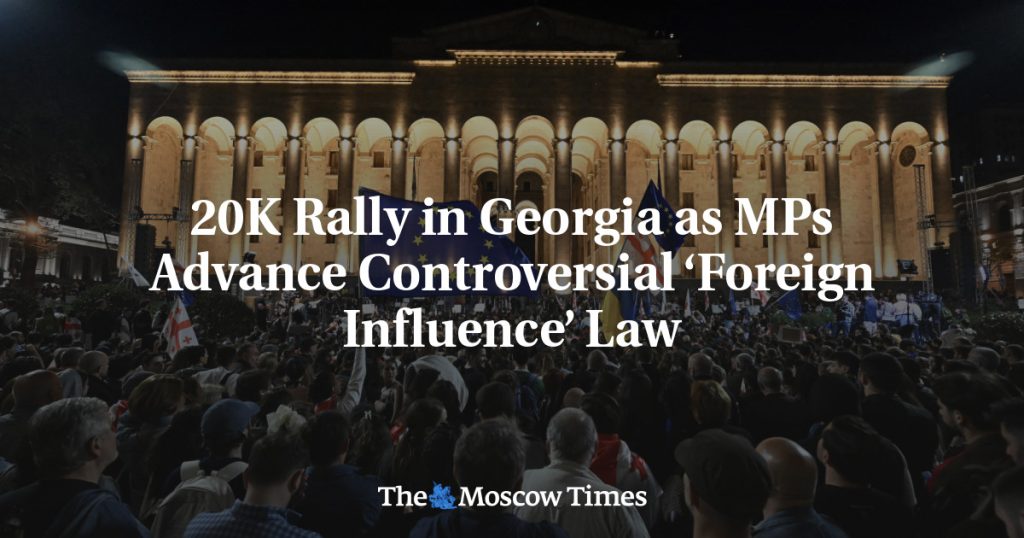Recently, in Georgia, 20,000 protesters gathered to oppose a controversial “foreign influence” law that critics argue will deter the country’s aspirations to join Europe. The ruling Georgian Dream party passed the first reading of the bill, boycotted by opposition deputies, that is thought to resemble a repressive Russian law used to suppress dissent. Protesters took to the streets, blocking traffic and demanding the withdrawal of the draft law within an hour, showing unity and determination in their resistance against what they see as a move towards Russia and away from Europe.
The demonstrations in Georgia are a response to the ruling party’s actions that are seen as a departure from the country’s goal of closer ties with the West and a shift towards aligning with Russia. The continued protests are fueled by concerns of democratic backsliding and the government’s attempts to limit the influence of Western-funded NGOs. Prime Minister Irakli Kobakhidze has defended the law as a means to increase financial transparency of these organizations but has faced criticisms and accusations of trying to manipulate the country’s direction and stirring anti-Western sentiment.
The European Union has expressed deep concern over the passing of the draft law in the Georgian parliament, calling it a troubling development that goes against EU values. The EU has been pivotal in Georgia’s bid for closer ties with Europe but has outlined several conditions that the country must meet, including judicial reform and press freedom, for membership talks to proceed. President Salome Zurabishvili has condemned the measure as contradicting the will of the Georgian people and accused the ruling party of pursuing a Russian strategy of destabilization, a sentiment echoed by Washington which fears the law will disrupt Georgia’s European aspirations.
The proposed law in Georgia would mandate any NGO or media organization receiving more than 20% of its funding from abroad to register as an “organization pursuing the interests of a foreign power.” This requirement has been heavily criticized as an attempt to stifle civil society and limit freedom of expression. Amnesty International has called on Georgian authorities to halt efforts to impose repressive legislation on civil society, warning of the negative impact on the country’s vibrant civil society. A similar bill was previously dropped after mass protests, but the ruling party reintroduced it ahead of crucial parliamentary elections, indicating a contentious battle for the country’s democratic future.
As the protests continue and opposition to the draft law grows stronger, the government of Georgia faces mounting pressure from both domestic and international actors to reconsider its support for the bill. The demonstrations reflect a broader concern about the direction of the country and the erosion of democratic values in favor of closer ties with Russia. The outcome of this situation remains uncertain, but the determination of the protesters and the backlash from the international community suggest that the fight for Georgia’s European aspirations is far from over. Ultimately, the passage of this law will have significant implications for the future of Georgia and its relationship with the West.


